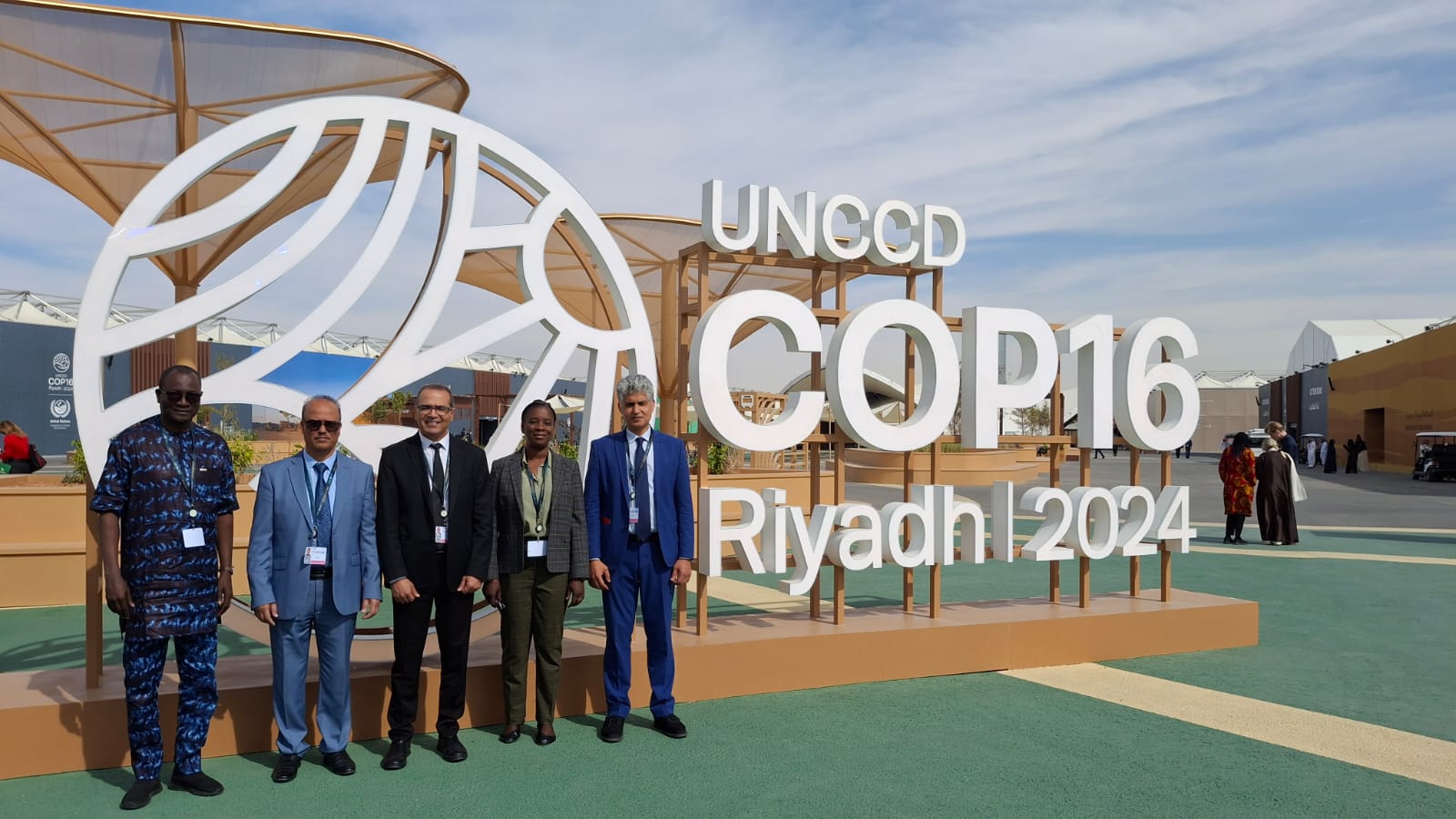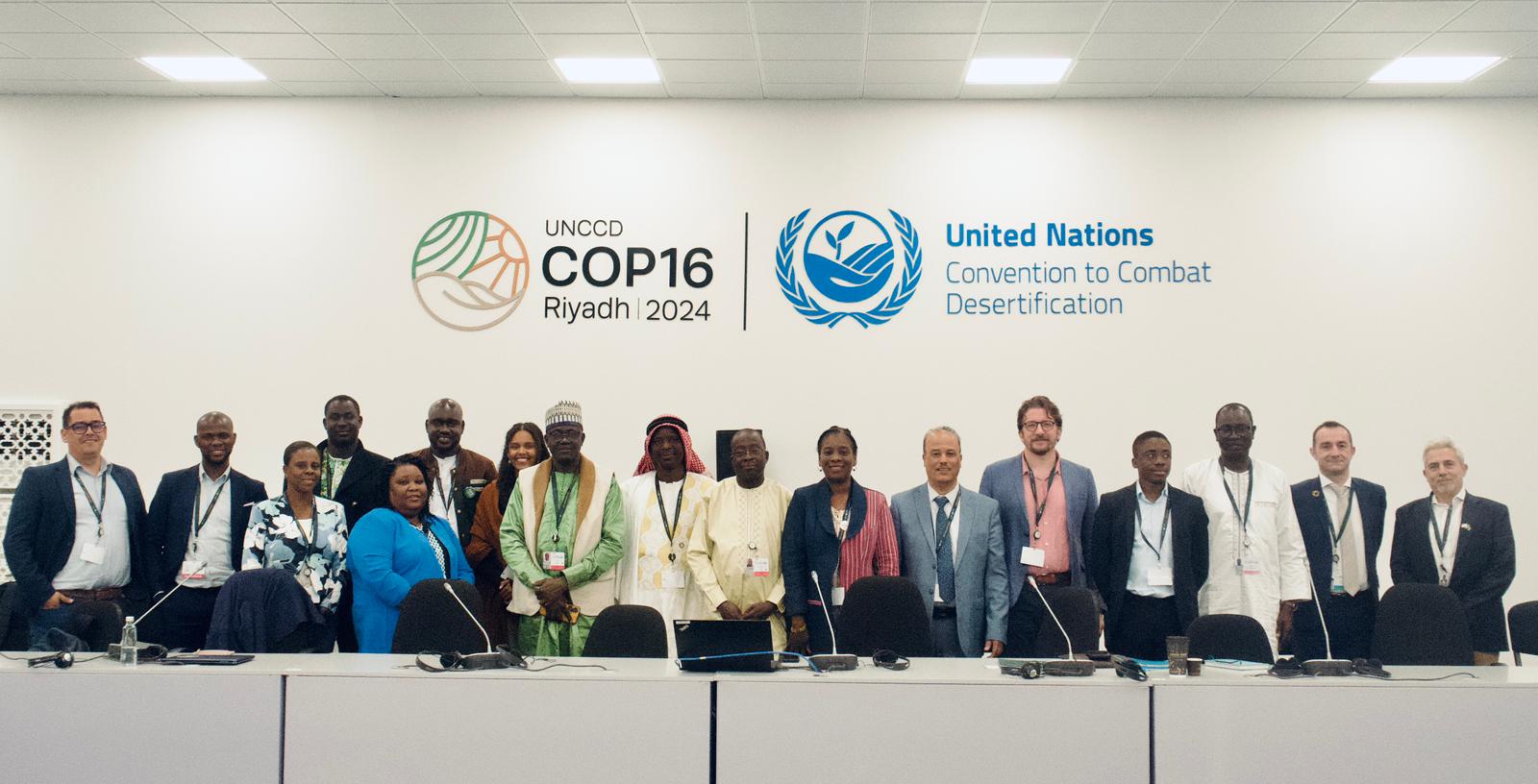27th Session of the OSS Strategic Orientation Committee, Tunis, January 28, 2025
Held on January 28, 2025 in Tunis, the 27th session of the Strategic Orientation…




The International Livestock Research Institute (ILRI) convened a workshop for The Sustainable Investments for Large-Scale Rangeland Restoration (STELARR) in Rome between October 23-26.
This Workshop introduced the project to rangeland and commercial sector stakeholders as potential partners in the project and provided opportunities for discussion and input to planned project implementation.
The project seeks to harness commercial sector finance for rangeland restoration through sustainable livestock value chains. It is funded by the Global Environment Facility (GEF) with the International Union for Conservation of Nature (IUCN) as implementer and ILRI as executor. ILRI will work with other Consultative Group for International Agricultural Research (CGIAR) centers and the Sustainable Fibre Alliance among other. At this meeting the current status of the data platform was shared as well as other platforms and data systems with which the rangelands platform anticipates linking. As part of the STELARR project, a global rangelands data platform will be established. This platform is anticipated to be the “go-to” platform on rangelands including status, trends and changes, data, education material and other resources.
In attendance were over 27 International organizations among the OSS, where a variety of presentations were given by organizations working on rangelands and pastoralism to scope the opportunities available to enhance synergies on this topic and increase awareness and advocacy on the importance of rangeland across the world.
During the event, Mr. Robert Onyango, representing OSS, presented an overview of the organization and its environmental monitoring and surveillance initiatives. He highlighted OSS's contributions to combat land degradation, desertification, sustainable water management, and the preservation of biodiversity. Additionally, the presentation delved into specific climate department projects, including the DRESSEA Project (Strengthening Drought Resilience for Small Farmers and Pastoralists in the IGAD Region), aimed at enhancing drought resilience for small-scale farmers and pastoralists in the IGAD region (Djibouti, Kenya, Sudan & Uganda), and the ADSWAC Project (Strengthening resilience as a means of adaptation to drought and climate change in communities in South-West Africa), focused on bolstering community resilience in drought-affected regions of Angola and Namibia, where pastoralism faces increasing challenges from factors such as population growth, land use changes, and climate variability.
At the end of the workshop, various expectations and outcomes were agreed upon which included:
As part of the OSS 2030 strategy, this workshop is aligned to the axes detailing climate, biodiversity and water. Moving forward, OSS will further engage its experts to implement project outputs related to livestock and rangeland management with the collaboration of the various partners and entities.
Held on January 28, 2025 in Tunis, the 27th session of the Strategic Orientation…

The participation of the Sahara and Sahel…

OSS Side Event at COP16: Strengthening Resilience in the Sahel through Multi-…